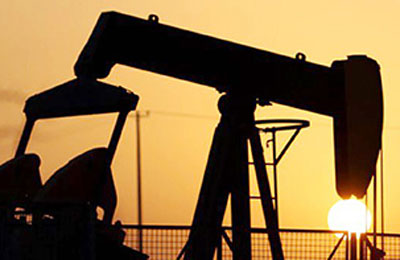
High oil prices big boost for Bahrain's economy
Manama, June 22, 2014
High oil prices fuelled by the escalating crisis in Iraq could help drive down Bahrain's national debt.
Crude oil prices have been on the increase in recent weeks, with concerns over disruption in supply driving up some international benchmarks to as high as $115 a barrel, said a report in the Gulf Daily News (GDN), our sister publication.
On Wednesday, militants from the Islamic State of Iraq and the Levant (ISIL) renewed attacks on Iraq's largest oil refinery at Baiji - forcing its closure and stoking fears over oil exports as some firms pulled foreign oil workers out of the country.
While all of Baiji's estimated output capacity of 320,000 barrels a day - a quarter of Iraq's refining capacity - has until now been used domestically, a prolonged shutdown could force the country to start importing oil and cut into global supplies.
Yet, the immediate effect of inflated crude prices, which are hovering near 52-week highs, would be beneficial to Bahrain - as its current budget was calculated under the assumption that the relative price of oil is $80 a barrel, according to Shura Council financial and economic affairs committee chairman Khalid Al Maskati.
Surplus cash-per-barrel could, therefore, be used to drive down the national debt before it reaches an "unsustainable" 60 per cent, he told the GDN.
"What we need to do is find a mechanism or a solution to utilise the extra money to lower the national debt," said Al Maskati.
"There is a law that deals with the 50 per cent debt we have - the debt is not scary.
"But we have a maximum of no more than 60 per cent debt that we can handle and if the crude oil price stays high, and if the money is utilised right to reduce national debt, it could be brought down to 40 per cent or less."
According to a recent Reuters report, Bahrain "relied on the Abu Safa oilfield, which it shares with Saudi Arabia, for some 71 per cent of its state budget revenue last year - up from 67 per cent in 2012".
In September, the GDN had reported that the country's break-even oil price - the average oil price which is needed to balance the budget - was $118.70 a barrel, based upon an International Monetary Fund estimate.
However, Al Maskati declined to make a connection between the ballooning price of oil and its possible impact on the government's attempts to balance the books.
"The immediate effect (of a high oil price) is to our advantage but we can't make a straight relation between the high price of oil and the break-even value," he said.
Meanwhile, a Bapco spokesman told the GDN that oil prices are expected to remain over $100 a barrel as further supply disruptions are on the cards.
"The key benchmark crude prices have been supported so far this year mainly by fears over crude supply disruptions amid many geopolitical tensions - namely in Ukraine, Libya and lately Iraq," he said.
"The prices remained above $100 a barrel and the outcome of the recent Opec meeting reiterated that the prices will remain in this range.
"A high oil price has a positive impact on Bapco's revenue from both crude and oil products sales," he added. - TradeArabia News Service







